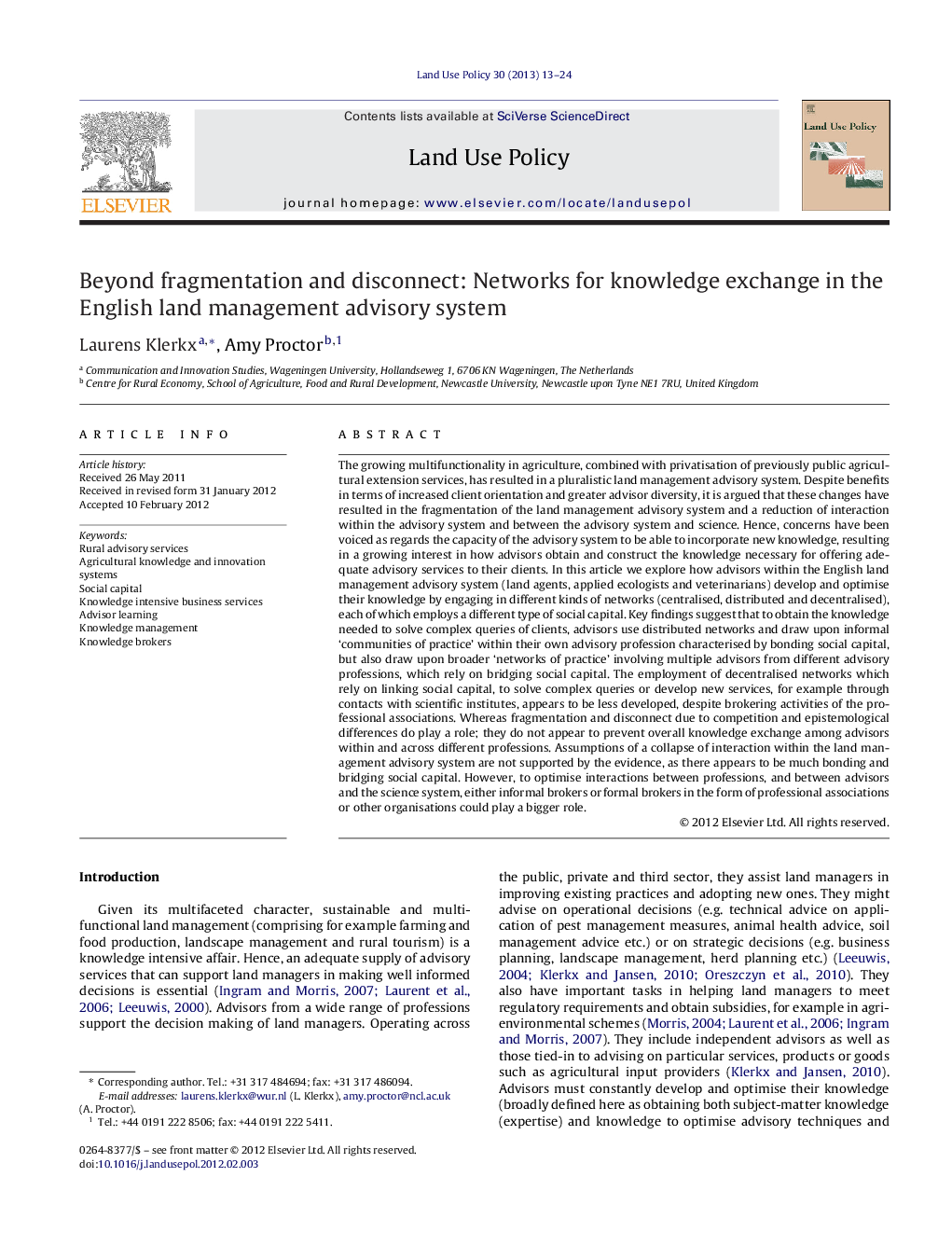| کد مقاله | کد نشریه | سال انتشار | مقاله انگلیسی | نسخه تمام متن |
|---|---|---|---|---|
| 92963 | 160111 | 2013 | 12 صفحه PDF | دانلود رایگان |

The growing multifunctionality in agriculture, combined with privatisation of previously public agricultural extension services, has resulted in a pluralistic land management advisory system. Despite benefits in terms of increased client orientation and greater advisor diversity, it is argued that these changes have resulted in the fragmentation of the land management advisory system and a reduction of interaction within the advisory system and between the advisory system and science. Hence, concerns have been voiced as regards the capacity of the advisory system to be able to incorporate new knowledge, resulting in a growing interest in how advisors obtain and construct the knowledge necessary for offering adequate advisory services to their clients. In this article we explore how advisors within the English land management advisory system (land agents, applied ecologists and veterinarians) develop and optimise their knowledge by engaging in different kinds of networks (centralised, distributed and decentralised), each of which employs a different type of social capital. Key findings suggest that to obtain the knowledge needed to solve complex queries of clients, advisors use distributed networks and draw upon informal ‘communities of practice’ within their own advisory profession characterised by bonding social capital, but also draw upon broader ‘networks of practice’ involving multiple advisors from different advisory professions, which rely on bridging social capital. The employment of decentralised networks which rely on linking social capital, to solve complex queries or develop new services, for example through contacts with scientific institutes, appears to be less developed, despite brokering activities of the professional associations. Whereas fragmentation and disconnect due to competition and epistemological differences do play a role; they do not appear to prevent overall knowledge exchange among advisors within and across different professions. Assumptions of a collapse of interaction within the land management advisory system are not supported by the evidence, as there appears to be much bonding and bridging social capital. However, to optimise interactions between professions, and between advisors and the science system, either informal brokers or formal brokers in the form of professional associations or other organisations could play a bigger role.
► Concerns exist as regards the capacity of privatised advisory systems to remain up-to-date.
► Advisors above all use informal ‘networks of practice’ for remaining up-to-date.
► Networks of multiple advisors sharing knowledge are brokered around complex queries of clients.
► Professional bodies fulfil an important role in connecting advisors to science.
► Assumptions of a collapse of interaction within the advisory system are not supported by the evidence.
Journal: Land Use Policy - Volume 30, Issue 1, January 2013, Pages 13–24